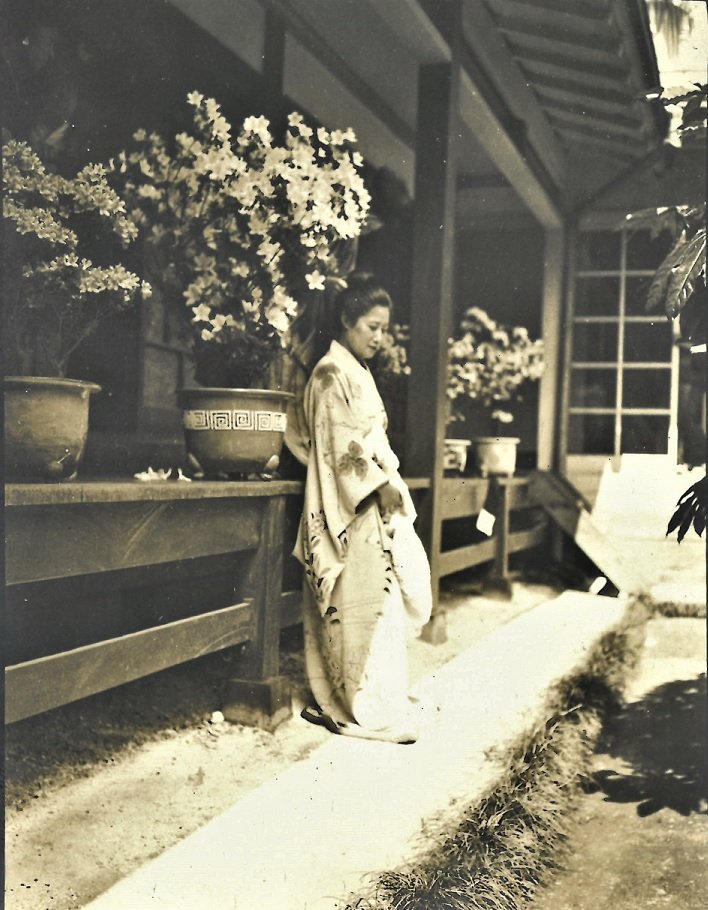Phipps Family History: Vacation Photos—An Archival Mystery
Looking up the staircase from the second-floor hall of Westbury House, visitors often ask visitor services staff, “what’s upstairs?” And the reply is “offices and storage rooms, that are closed to the public.”
These rooms, which served as childhood bedrooms for Ben, Hubert, Peggie, and Michael, and later servant’s workrooms, contain thousands of items from family including correspondence, invoices, architectural drawings, and photographs from the late 1890s through the 1950s. In various stages since the early 1980s, staff and volunteers have painstakingly reviewed these materials, ensuring their protection from deterioration, and undertaking their cataloging.
A rich treasure of this collection are the hundreds of family photographs that document the lives of Jay and Margarita Phipps, their children, as well as Jay’s parents, Henry and Anna. Among this collection are the photos from the family’s international travel. The Phipps were fortunate to travel to lands that were still unfamiliar to most and considered “exotic” or even judgmentally as “primitive”, and the photos show this allure.
Recently, archive specialist Drew Fullshire digitized photos from a photo album with penciled notes: “East Asia Trip 1904.” Interestingly, immigration records don’t record such travel by Jay, Margarita, or their relatives. In addition, a search of other archival records also doesn’t record such a trip. We know Jay and Margarita travelled to India for their honeymoon in 1904, but newspaper accounts relate their journey from England to India and followed by direct return to England (due to the parental concern for their safety). Another mystery are the persons who accompany Jay in the photos. Perhaps they include Michael P. Grace or perhaps, Frederick Guest, who married Jay’s sister Amy in 1905? Or perhaps the penciled date is incorrect?
In any case, these photos provide a glimpse into international tourism in the early 20th century and the accompanying Euro-American enchantment with “foreign” lives.








